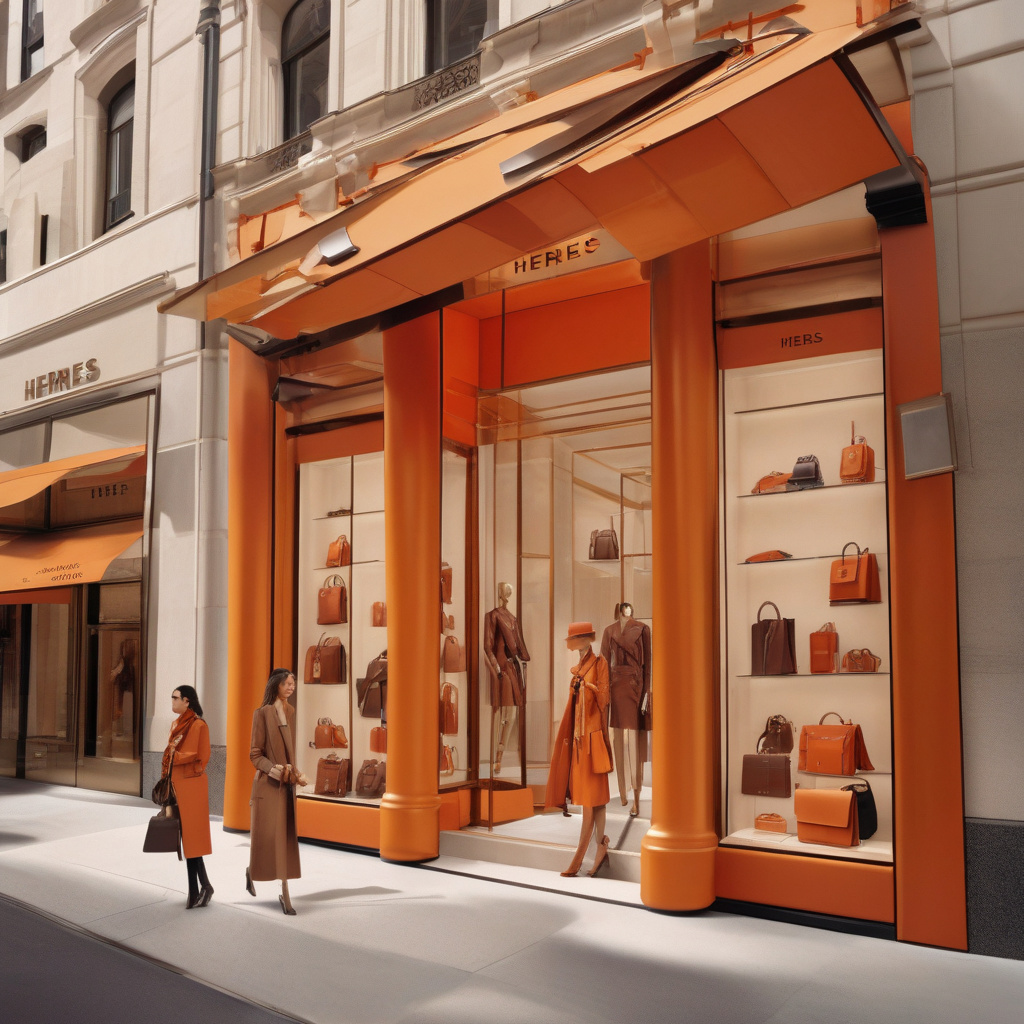Hermès Valuation Woes Eclipse Sales Gain
French luxury goods powerhouse Hermès International recently found itself in a predicament as its valuation took a hit, overshadowing the impressive sales growth it achieved in the second quarter of the fiscal year. Despite reporting a substantial increase in sales that outstripped its key competitors in the luxury market, Hermès witnessed its shares plummet by as much as 4.7 percent. This unexpected turn of events has left investors and industry analysts scratching their heads, trying to make sense of the disconnect between the company’s stellar performance in sales and the decline in its valuation on the stock market.
Hermès, known for its iconic Birkin bags, silk scarves, and other high-end fashion accessories, has long been synonymous with exclusivity, craftsmanship, and timeless elegance. The brand’s ability to maintain its aura of sophistication while consistently expanding its global reach has made it a darling of both fashion connoisseurs and investors seeking stable returns in the luxury sector. However, the recent downturn in Hermès’ stock price has cast a shadow over its otherwise strong sales figures, raising concerns about the underlying factors driving this apparent discrepancy.
One possible explanation for Hermès’ valuation woes could be attributed to broader market trends and investor sentiment towards the luxury goods industry as a whole. In an era marked by economic uncertainties, shifting consumer preferences, and geopolitical tensions, even top-tier brands like Hermès are not immune to the fluctuations of the stock market. Factors such as trade wars, currency fluctuations, and changing consumer behavior patterns can all have a ripple effect on how luxury companies are perceived by investors, leading to sudden dips in stock prices despite robust sales performance.
Moreover, the discrepancy between Hermès’ sales growth and its declining valuation may also be indicative of deeper structural issues within the company or the luxury sector at large. As the competitive landscape evolves with the rise of e-commerce, changing demographics, and the growing influence of sustainability and ethical practices, traditional luxury brands like Hermès are facing pressure to adapt and innovate to stay ahead of the curve. Failure to address these evolving market dynamics and consumer expectations could potentially erode investor confidence and impact the long-term growth prospects of even the most esteemed luxury houses.
Despite the current challenges facing Hermès in terms of its valuation, the brand’s resilience, brand equity, and loyal customer base continue to position it as a formidable player in the global luxury market. By staying true to its heritage of craftsmanship, exclusivity, and timeless appeal, Hermès has weathered many storms and emerged stronger each time. As the company navigates through the current turbulence in the financial markets, it will be crucial for Hermès to communicate its strategic vision, adapt to changing market dynamics, and reassure investors of its long-term sustainability and growth potential.
In conclusion, while Hermès may be grappling with valuation woes that have eclipsed its remarkable sales gain in the second quarter, the brand’s enduring legacy and commitment to excellence provide a solid foundation for weathering the current storm. By addressing the underlying factors driving the disconnect between sales performance and stock market valuation, Hermès can regain investor confidence and reaffirm its position as a true icon of luxury and style in the ever-evolving fashion landscape.
Hermès, Valuation, Sales, Luxury, Fashion











